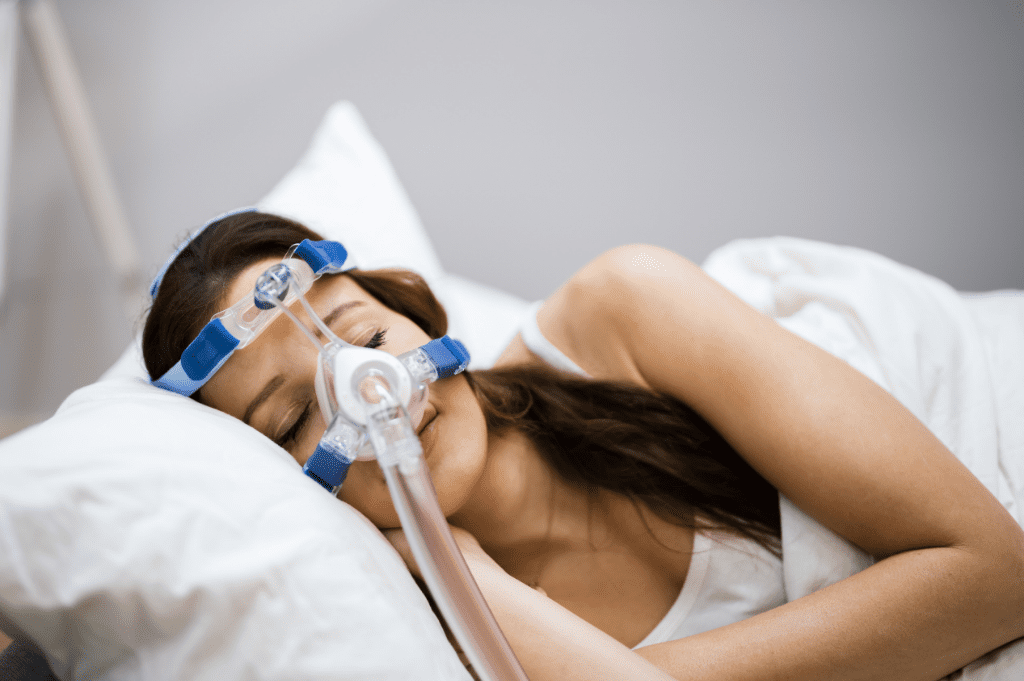Has your partner ever complained about how often you snore? Do you sometimes wake up in the middle of the night gasping for air or consistently start off your mornings with a dry mouth or headache? You may be suffering from sleep apnea. In this blog, I will go over what sleep apnea is and how dentists can treat it in a safe and effective way.
What is sleep apnea?
The Greek word “apnea” literally means “without breath.” There are three types of apnea: obstructive, central, and mixed. Of the three, obstructive is the most common. Despite the difference in the root cause of each type, all three are associated with people who stop breathing repeatedly during their sleep, sometimes hundreds of times during the night and often for a minute or longer. This can lead to poor sleep quality, daytime fatigue, high blood pressure, increased risk of cardiac failure, heart attack, stroke, metabolic syndrome disorders, irritability, difficulty paying attention while awake and more.
What are the different kinds of sleep apnea?
Obstructive sleep apnea (OSA) is caused by a blockage of the airway, usually when the soft tissue in the rear of the throat collapses and closes during sleep. With central sleep apnea, the airway is not blocked but the brain fails to signal the muscles to breathe. Mixed apnea, as the name implies, is a combination of the two. These breathing pauses can prevent your body from supplying enough oxygen to the brain. In severe cases, this lack of oxygen can lead to brain damage. Overall, sleep is extremely fragmented and of poor quality. This can eventually lead to major medical issues and eventually death.
How do you find out if you have sleep apnea?
The gold standard for diagnosing someone with sleep apnea is a Polysomnography (PSG), or, sleep study. This test is performed while the patient is asleep at a sleep laboratory, and monitors brain waves, blood oxygen levels, heart rate and breathing, as well as eye and leg movements. There are also at-home sleep tests that are an easy, cost-effective way to figure out whether you’re having trouble breathing at night. An at-home sleep test is a very simplified breathing monitor that tracks your breathing, oxygen levels, and breathing effort while being worn. On the contrary, it is not as effective as having your sleep study conducted at a laboratory where more signals can be captured such as brainwaves, muscle tone, and leg movements.
How do you treat sleep apnea?
Following a diagnosis of sleep apnea from a certified physician, there are a few different options you have to treat the condition. The use of medically-approved oral appliances is often critical to have the best control of this disorder. The oral appliances can be used, at times, when CPAP or other positive pressure devices are not tolerated well by the patient.
A CPAP or Continuous Positive Airway Pressure machine is the most common way to eliminate or drastically improve sleep apnea. A CPAP machine uses a hose connected to a mask or nosepiece to deliver constant and steady air pressure to help you breathe while you sleep. They are very safe, effective and will almost certainly put an end to your snoring. A CPAP will most likely eliminate or significantly reduce your sleep issues with this disorder.
Next steps
Although sleep apnea can be scary, it is not an untreatable condition. Worldwide, over 100 million people suffer from sleep apnea – so you are not alone. If you have ever been told you snore consistently at night by your partner or have concerns based on the symptoms stated previously in this blog, seek help from your family doctor or dentist. Following a diagnosis from a sleep clinic, specialists such as Dr. Salyani at Collingwood Dentistry can provide you with a personalized plan to get your sleep apnea under control.

